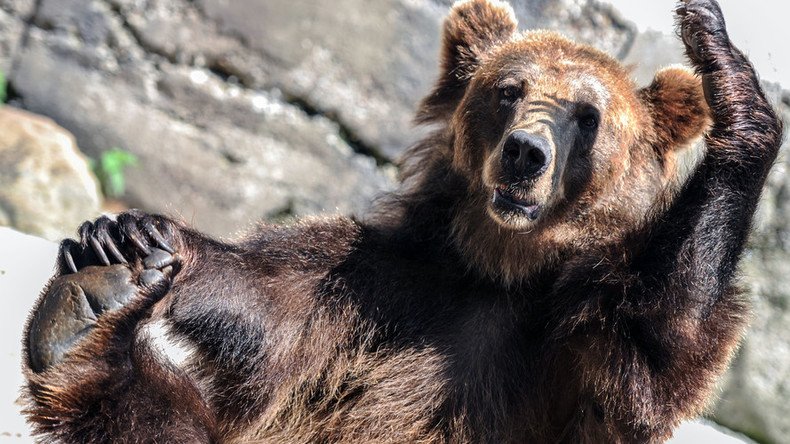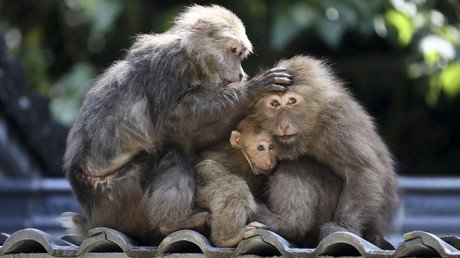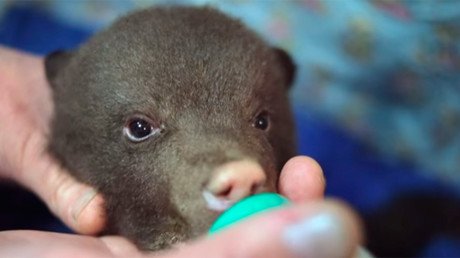Bears’ gut microbes help stave off ill effects of the munchies – research

If you’ve ever dreamed of eating as much as you want with no consequences, you might envy the brown bear. Researchers have found that their gut microbiota changes drastically throughout the year, helping them avoid obesity and save energy in winter.
The bugs don’t prevent bears from getting chubby, however. Before going into winter hibernation, brown bears stuff themselves with all the food they can find, rapidly gaining body fat to last them through their long slumber – but they suffer none of the health problems that obesity normally entails as a result.
An international team of scientists analyzed fecal samples from 16 wild bears to understand why the dramatic seasonal nutrition changes do not harm their health, an article published in Cell Reports says. The team found that the gut microbiotia in bears changes throughout the year.
“During winter hibernation, the concentration of several specific molecules in the bear’s blood increase, a process that we believe reflects changes in the gut microbiota. When summer is well underway, the omnivorous bear eats varied diet, which increase microbial diversity,” senior researcher Fredrik Bäckhed from the University of Gothenburg in Sweden said.
The team revealed that “summer” bacteria are believed to be responsible for weight gain, while “winter” or “hibernation” bacteria help bears to conserve energy through insulin resistance.
“Studies have shown that the brown bear is insulin sensitive during the summer, while it develops insulin resistance during the winter months, in order to reduce energy consumption in the body and save energy for the brain,” says the press release on the research.
In order to understand the mechanism better the scientists tested the bears’ gut bacteria on germ-free mice. The mice who received “summer” bacteria gained weight faster than those injected with “winter” bacteria.
The mice that increased their capacity to store fat due to “summer” bacteria, however, remained “metabolically healthy” without suffering from problems associated with obesity.
“Especially interesting was the notion that the mice became fatter without developing insulin resistance, similar to the bears from where the microbiota was obtained,” Bäckhed said.
The scientific team says that it is too early to talk about the practical utility of the discovery, pointing to the need for further studies.
“The study is classic basic research and more studies are needed to arrive at any practical applications. But the bear study provides new knowledge on how gut microbiota affects our metabolism, a finding that may help us to develop bacteria based treatments in the future,” Bäckhed said.














